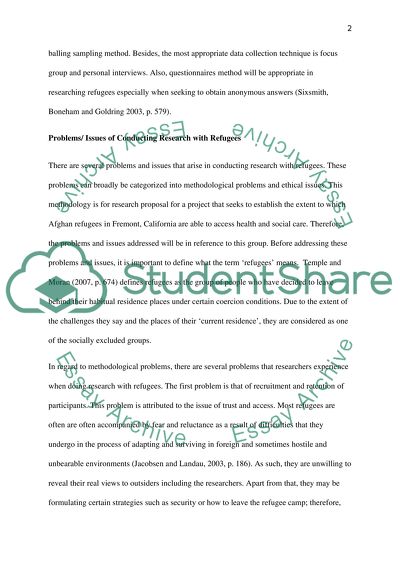Cite this document
(“Problems/ Issues of Conducting Research with Refugees Essay”, n.d.)
Problems/ Issues of Conducting Research with Refugees Essay. Retrieved from https://studentshare.org/environmental-studies/1441764-a-charity-working-with-refugees-wants-to-establish
Problems/ Issues of Conducting Research with Refugees Essay. Retrieved from https://studentshare.org/environmental-studies/1441764-a-charity-working-with-refugees-wants-to-establish
(Problems/ Issues of Conducting Research With Refugees Essay)
Problems/ Issues of Conducting Research With Refugees Essay. https://studentshare.org/environmental-studies/1441764-a-charity-working-with-refugees-wants-to-establish.
Problems/ Issues of Conducting Research With Refugees Essay. https://studentshare.org/environmental-studies/1441764-a-charity-working-with-refugees-wants-to-establish.
“Problems/ Issues of Conducting Research With Refugees Essay”, n.d. https://studentshare.org/environmental-studies/1441764-a-charity-working-with-refugees-wants-to-establish.


